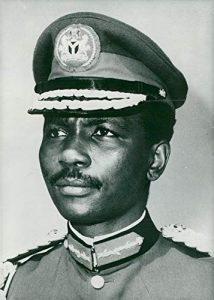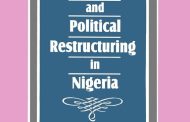Social stalemate in Nigeria, Africa’s most populous nation, is far from abating. Not only do media reports suggest discord at the highest level of government, there is also no consensus at the elite level and at no levels either – local, ideological, class and so on.

Symbols of a totally fragmented elite
Nearly nobody believes the president has an idea of what to do next if the current spate of railing at him is anything to go by. Key regional, political and religious groups, not to talk of the media, are railing at him non-stop, thereby reinforcing the government’s legitimacy crisis. A campaign to pressure him to relieve military chiefs of their appointment based on a strong perception that the serving appointees have reached the limit of innovation is on-going.
All these are happening against two no less frightening indicators. First, no institutions, coalitions or individuals have emerged with a narrative of the stalemate that has national appeal or acceptance. A number of such efforts might be going on behind the scenes but the situation has already gone beyond back channel activism. When IBB ran out of gas in 1993, there was, at least, Obasanjo’s Association for Good Governance. Whatever the motivation behind it, it did serve a symbolic national cause. This time, Obasanjo and each of his fellow Generals is moving in a different direction. Things could go in a manner that could shatter the assumption that the elite always know how to come together after using everyone to re-negotiate their share of patronage. In other words, there is no guarantee that the elite have such constitutive interest that enables it to be master of collective destiny without rupture. There lies the danger of current fragmentation.

Most critical Historians would say there would still have been Nigeria without Lugard given the trade networks and pattern of migration

The Nigeria of Lugard has since given way to the Nigeria of Gowon but creating the Nigerians appear to be work-in progress
The second sociologically frightening scenario is the uncomplicated nature of majority of the citizenry. It manifests most in their degree of vulnerability to all manner of information they come across and believe, evident in what they quote to buttress their standpoints in the spaces of the everyday. That suggests that what was said about Italian nation-statism centuries ago is not out of place for Nigeria. The idea of “we have built Italy, let’s build Italians” can be quickly edited to “Lugard and later, General Gowon – by successfully suppressing the Biafran revolt – have created Nigeria but have yet to create Nigerians”. Lugard and Gowon are used as symbols here because nation and state building is not a one – person business except in very few places where one person, family, clan or group took this up brilliantly. Nigeria has not been so lucky to have had such a leadership.
To stretch the national spirit, Boko Haram insurgents have obviously re-built their capacity for targeted violence. It is the most accurate evidence of a collapsing state that Nigeria cannot mobilise intelligence, military, diplomatic, mediated and cultural resources to route a desert insurgency. But, even scarier in terms of stateness of the state are the numerous spaces taken over by varied outlaws within the country. General Abubakar Abdulsalami once remarked the danger in this mostly rural dimension of generalised insecurity. His alert appears to have gone unheeded. To the list can be added domestic violence, banditry and kidnapping.
The analytical allure of the dialectical claim that underpins Marxism can be very inviting here even as unhelpful as it is in terms of the resolution. If we follow the dialectical triad, then the question would be whether all these can be bracketed as anti-thesis or as synthesis. In other words, are all these frightening features of Nigeria today contradictions of imperialism/postcolonial state/military rule/elite misrule/corruption/nepotism, (pick your choice) and which is to say there will be an explosion somehow soon Or are these features nemesis for a nation?
The answer is none of the above because, give Nigeria a core of critically informed core of transformative leaders, (not leaders in terms of political office holders) today and Nigeria will be a different place tomorrow. That sort of magic cannot come from quantitative leaders showcasing material effects, (roads, roundabouts and buildings) but from leaders with the agency to frame the Nigerian situation first and, by implication, provide the discursive condition of emergence of the New Nigeria or the remaking of Nigeria. Otherwise, this situation will worsen. The next president might even be worse than Buhari. No one thought a worse president than Goodluck Jonathan was possible.



























